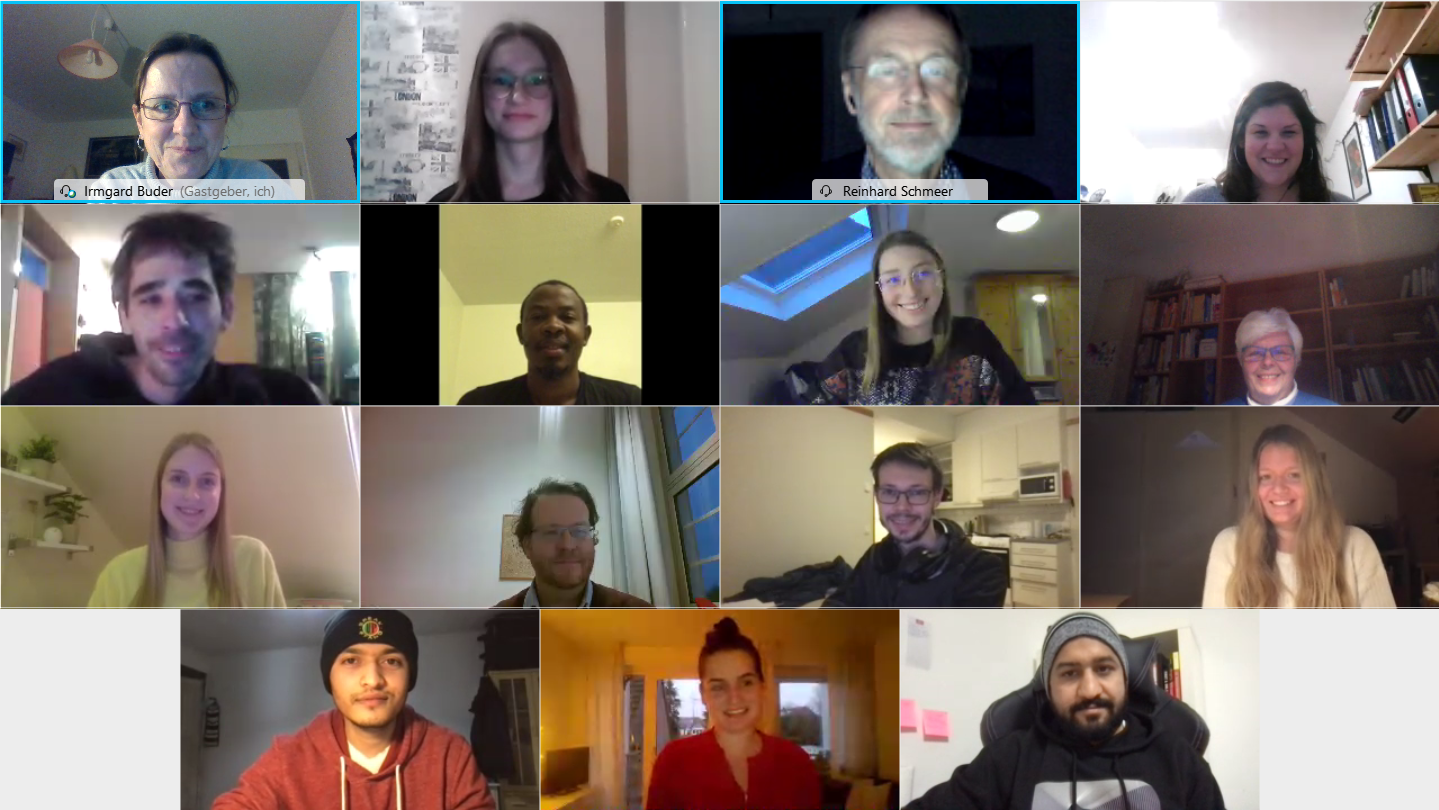FairRhein Meets Hochschule Rhein-Waal

On 28.01.2021, Vanessa Meinert and Stefan Schmitz presented the results of the interdisciplinary project "Fairness in the Textile Industry" to the board of FairRhein e.V. in an online conference. Together with seven other students of different disciplines from the Faculty of Communication and Environment at Rhine-Waal University of Applied Sciences, they examined working conditions in the textile industry with a focus on Bangladesh and evaluated possibilities for improvement.
Starting with a reference to the Rana Plaza disaster in 2013, in which over 1,000 people were killed, the students described grievances in the textile industry in the global south: insufficient work safety, wages that are too low, working hours that are too long, child labour, but also environmental damage that endangers the health of workers and residents.
What is fair and how can "fair trade" lead to a significant improvement of the situation for workers in the textile industry? The first options discussed were certification procedures such as Fairtrade, the Fair Wear Foundation or the Green Button. They are an attempt to make trade fairer and more equitable, but they are voluntary. Clothing certified as fair is often only available in online trade, as was pointed out in the subsequent discussion. In addition, the costs of certification are often too high for small businesses.
State regulations, e.g. the Bangladesh Accord, which enforces higher wages and better labour safety in Bangladesh, are another possibility. However, similar regulations in other countries in Southeast Asia have not yet been achieved.
A supply chain law in countries that import textiles would improve the situation for those involved along the entire supply chain. In Germany, such a law has been discussed for several years, but has not yet been passed.
After the presentation, questions were answered and lively discussions took place: What does a seal say about the product? How high are the costs for certifications? How does the Supply Chain Act affect companies? Can small companies, for example, afford to monitor an international supply chain at all?
There was agreement on the goal of making trade fairer and more transparent and improving the situation for the workers in the production countries and along the supply chain, but not on how to achieve this. We would like to thank all the speakers and look forward to more opportunities for constructive exchange on this topic in the near future.
